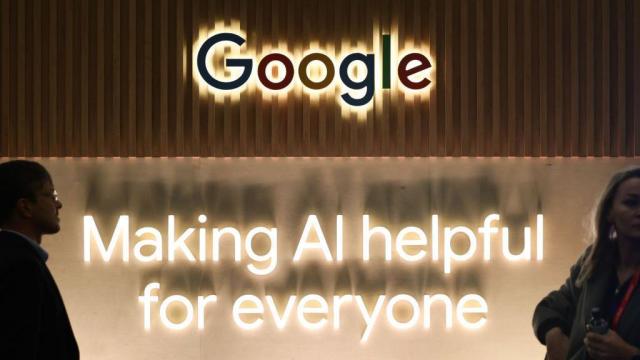Remember the “glue on pizza” incident? It seems like just yesterday the internet erupted in laughter (and maybe a little horror) after Google’s new AI-powered search results feature, AI Overviews, suggested using glue to fix cheese sliding off pizza. This, along with other demonstrably wrong answers, placed Google in a precarious position – defend its cutting-edge technology or admit a potentially embarrassing setback.
In a surprising move, Google has chosen the former. In a recent blog post titled “AI Search: Learning from the Funny and the Frustrating,” Liz Reid, Google’s head of search, defended AI Overviews while acknowledging its shortcomings.
Understanding the AI Overview Fiasco
AI Overviews, launched with much fanfare just weeks before the “glue-gate” incident, aimed to provide users with concise summaries of search results at the top of the page. This feature relied on machine learning algorithms to analyze websites and generate summaries that supposedly captured the essence of the information available.
Unfortunately, the system wasn’t perfect. In the case of the pizza, AI Overviews misinterpreted a satirical Reddit comment suggesting glue as a joke. Similarly, other users reported incorrect information being presented as fact, raising concerns about the overall accuracy of the feature.
Google’s Defense: Innovation vs Reliability
Despite the public outcry, Google maintains that AI Overviews represent a valuable step forward in search technology. Liz Reid argues that the feature, while imperfect, has resulted in “greater user satisfaction” overall. She highlights instances where AI Overviews accurately captured complex topics, saving users time and effort.
Google emphasizes its commitment to continuous improvement. The company claims to have implemented several measures to address the issues raised, including:
- Refining data sources: Limiting the use of user-generated content, particularly from social media and forums, which are more prone to humor and misinformation.
- Improved filtering: Developing algorithms that can better distinguish between factual information and satire or jokes.
- Transparency and user control: Providing users with options to disable AI Overviews or report inaccurate summaries.
credit – MSN
Concerns About Trust and Transparency
While Google touts the benefits of AI Overviews, some experts remain skeptical. Concerns persist about the potential for bias and misinformation to be amplified by AI algorithms.
“The problem with AI-generated summaries is that they lack context,” says Dr. Amelia Wang, a computer science professor at Stanford University. “Without proper safeguards, these summaries can easily mislead users, especially on complex topics.”
Others argue that Google’s approach lacks transparency. The inner workings of AI Overviews remain shrouded in secrecy, making it difficult to assess how the system arrives at its conclusions. This lack of transparency can erode user trust, a vital component in the search engine landscape.
The Road Ahead for AI Search
The “glue on pizza” incident serves as a stark reminder of the challenges and pitfalls inherent in AI technology. While AI offers immense potential to revolutionize search, ensuring accuracy and user trust remains paramount.
Moving forward, Google will face the continuous challenge of balancing innovation with reliability. Whether AI Overviews can overcome its initial hiccups and become a truly valuable search tool will depend on Google’s commitment to transparency, rigorous testing, and a genuine focus on user needs.
The Broader Implications of AI in Search
The Google AI debacle is not an isolated incident. All major search engines are actively exploring AI-powered search features. This raises broader questions about the future of search and the role of AI in navigating the vast ocean of information online.
One potential outcome is a future where AI acts as a personalized curator, tailoring search results to individual users and their specific needs. However, this raises concerns about algorithmic bias and the creation of “filter bubbles” where users are only exposed to information that confirms their existing beliefs.
The next chapter in the evolution of search will likely be defined by the ongoing struggle to balance innovation with user trust. Search engines like Google will need to strike a delicate balance between embracing the power of AI and ensuring that search results remain a reliable source of information for everyone.

















Add Comment